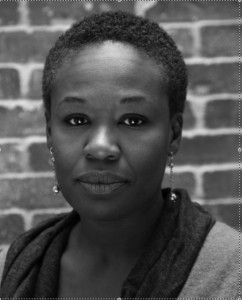Ulysse Writes About ‘Pedagogies of Belonging,’ Public Anthropology
 Professor of Anthropology Gina Athena Ulysse is the author of two new essays on The Huffington Post.
Professor of Anthropology Gina Athena Ulysse is the author of two new essays on The Huffington Post.
In “Pedagogies of Belonging,” she writes about her experience working with students of color as they face the realities of structural racism, and she challenges institutions to go beyond rhetoric, to face up to the difficult challenges of moving onto a path of greater belonging.
The essay begins:
There is a conversation Black faculty often have with Black students that we rarely mention in public, let alone in mixed company. The tone of this exchange differs to some extent if the student are U.S. born or from the diaspora. It follows discussions that open their consciousness as they grapple with accepting an inescapable truth — they are Black.
It’s not that they did not know this. But now there is a new realization that emerges as they are bombarded with intellectual evidence in our classrooms that corroborates their everyday reality. Combined with social interactions in institutions not made in their image, the students confront what the late Martinican postcolonial psychiatrist and philosopher Frantz Fanon aptly calls the ‘fact of blackness.’ Their bodies are historically coded and permanently marked with significations that forces them into categories they cannot choose. Acknowledgement of this fact comes with the recognition that they will be denied the unearned, social luxuries afforded to their white peers.
Ulysse also recently wrote an essay, “Paul Stoller’s Public Anthropology Turn” about WesChester University’s Stoller, the first blogger to be awarded the Anthropology of Media Award by the American Anthropological Association (AAA).
Ulysse, who shares with Stoller an interest in bringing anthropology to the public, interviewed Stoller about the significance of this award. He tells her he was inspired to “enter the public sphere out of a sense of duty instilled by his mentors.” Ulysse writes:
Throughout his career, Stoller has tried to follow their path with his work. In the last five years, he has experienced what he calls “blogging bliss” and “blogging bites.” The former, also the title of a new book, reflects a blogger’s elation at knowing a piece of writing hit all the right notes and reached an audience beyond the paucity of readers that rigorously researched academic journals attract. The downside, he noted, is in “the limited scope, nuance and length (850 words), along with a short-life span (24hours), after which a post quickly dissipates into the ether of cyberspace. In short, if you only read a blog you get a sliver of knowledge and that can be problematic.”
To be sure, the discipline and its practitioners have had an ambivalent relationship with public writing. Academic institutions tend to be inherently conservative and anthropology is no exception. Public anthropology is often characterized as “popular,” “light,” and not “serious” and hence not the path to prestigious academic appointments, important research grants, and disciplinary recognition. Still, many will quickly point out that Frantz Boas and Margaret Mead were disseminating our too often coveted knowledge to anyone who would listen back in their day. They were not the only ones, Black scholars such as St. Claire Drake, Katherine Dunham, Zora Neale Hurston and others were also out there interacting with the public. Needless to say, anthropologists have been roaming outside of ivory towers for some time using academic expertise to engage with the public, or at least, in more public fora.

